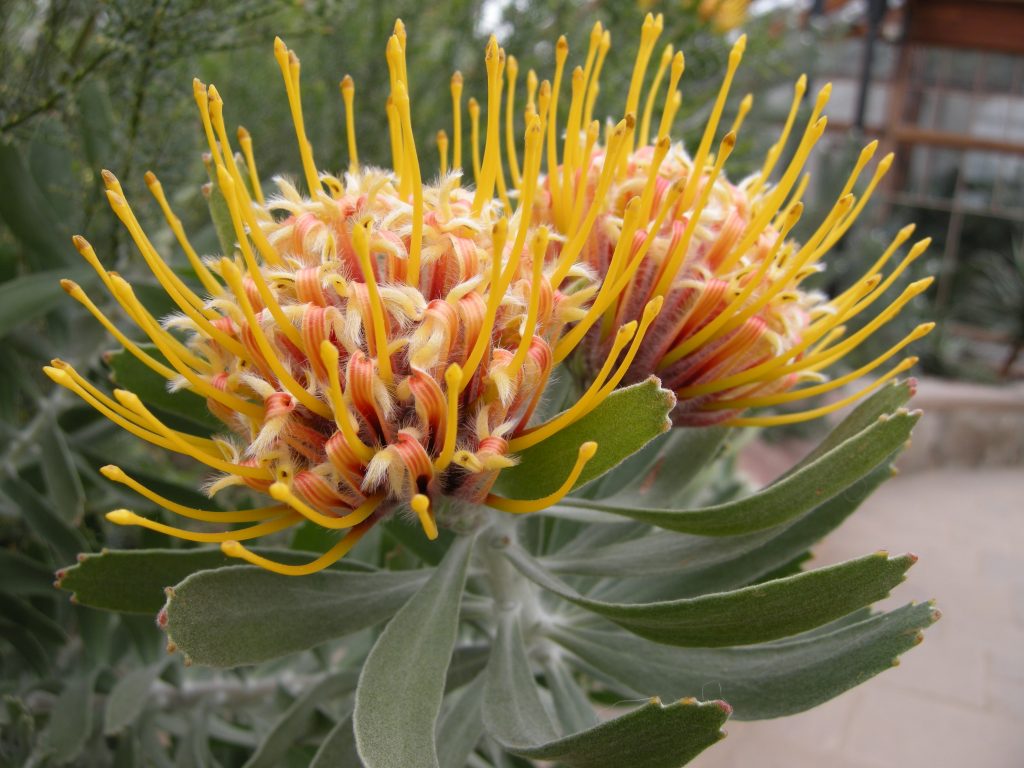The Continents Apart House highlights the similarities between the floras of the South African Cape and Southwestern Australia. Although these have evolved thousands of miles apart, they have their origins in the supercontinent of Gondwanaland, which began to split up 18 million years ago, resulting in the African and Australasian continents we know today. Despite evolving separately, the plants of these regions share characteristics which can be seen in the plants grown here.

Leucadendron cuneiforme
Click for information
The flora of both of these regions is totally distinct from the British flora, with plants often having downy foliage and flamboyant flowers. Here you can wonder at the large blooms of the South African king protea, Protea cynaroides, and compare it with the bottle brush-like flowers of Australian Banksia integrifolia. The stone plants, Lithops spp, and Cotyledon tomentosa ssp. ladysmithensis from South Africa will fascinate, as will the Australian kangaroo paws and grass tree (Xanthorrhoea glauca), among many others.

Cotyledon tomentosa ssp. ladysmithensis
Click for information

